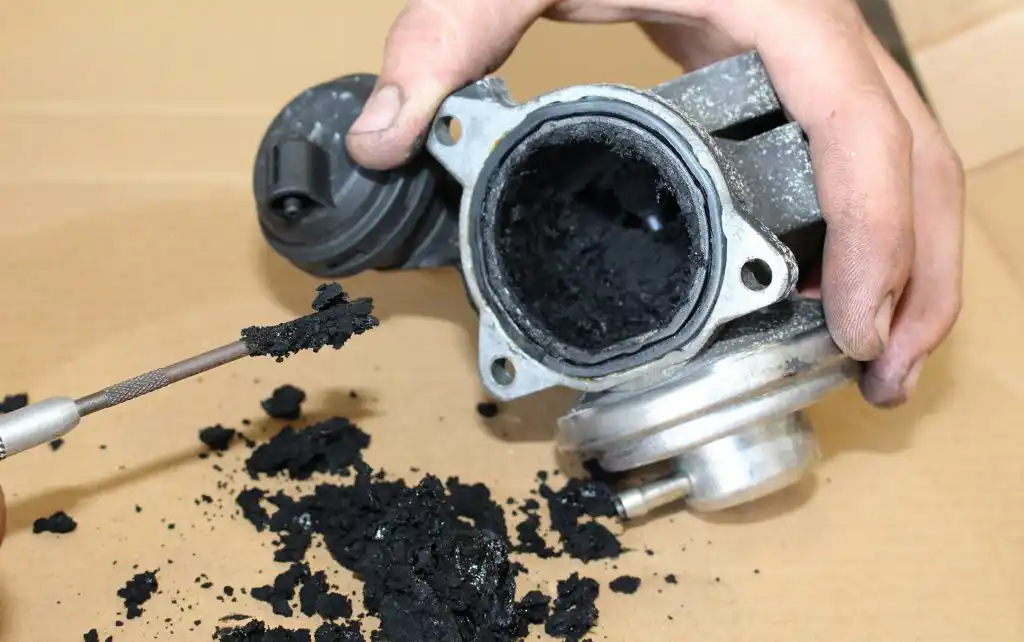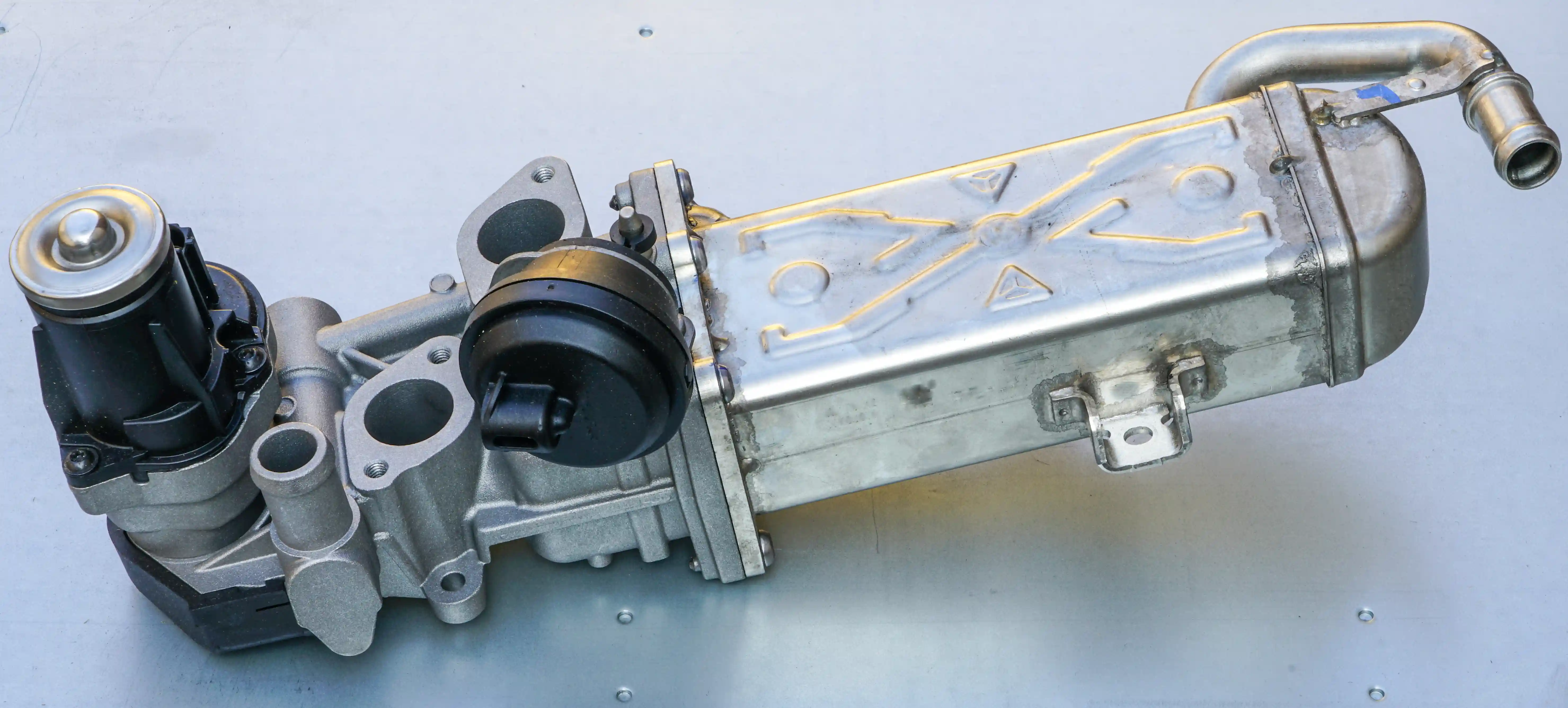
EGR OFF service refers to professionals modifying or deactivating your vehicle’s exhaust gas recirculation system. This specialized procedure is intended for vehicles utilized in specific, demanding applications or competitive environments. Choosing an EGR OFF stops exhaust gases from going back into the engine’s intake system. Many owners opt for an EGR OFF to fix running troubles created by the default system or to suit the vehicle to particular high-performance requirements. It's a modification aimed at specialist performance work under specific operational conditions.
What is an EGR System Before an EGR OFF?
EGR system is like a piece of machinery fitted to many modern engines, especially diesels. EGR stands for Exhaust Gas Recirculation. It's a system designed by the vehicle manufacturers as a part of the engine's overall management and emissions strategy. The car's engine burns fuel and air to produce a lot of power with two gases (CO2 and N2) that exit the engine.
Why Do Engines Have EGR Before an EGR OFF?
EGR systems are added on engines as per manufacturers’ compliance to regulations and other design goals. Part of the exhaust gas is sent back into the engine system under certain conditions. This process alters the environment in the engine cylinders while burning. It's just one of the ways the car makers control how the engine works and what comes out of the exhaust pipe.
How Does the EGR System Work Prior to an EGR OFF?
It sounds a bit strange, right? Putting exhaust back in? The system uses an EGR valve, which acts like a gatekeeper. This valve controls how much exhaust gas goes back to the intake manifold to mix with the clean air going to the cylinders. The ECU, or Engine Control Unit, acts as the engine's control center. Its job is to govern the position of the valve in response to your driving. That means it would constantly open and close the valve. A large number of diesel setups come equipped with an EGR cooler that utilizes engine coolant to bring down the temperature of these recirculated gases.
What Problems Lead People to Seek an EGR OFF?
While EGR system does its job, it is a source of real frustration. One challenge which diesel engines face is the exhaust gas itself. Diesel exhaust contains soot particles. Because of stuffing this sooty gas back into the cooler intake system, the soot deposits stick and build. This typically creates a dense, sticky sludge within the intake manifold and the EGR valve itself. Sometimes this mixes with oil vapour from the engine breather system.
Can a Faulty EGR Affect Performance Before an EGR OFF?
Absolutely. Having blow-by gases and gunky sludge can affect your performance. It can physically restrict the airflow into your engine. Often, it causes the EGR valve component to get clogged and stick.
If the valve hangs up open, it continually feeds exhaust into the engine when it shouldn’t. It messes up the fuel mixture, making the engine feel sluggish, hesitant, and low on power. A drop in engine performance might be experienced, such as a slower response of acceleration.
Does a Bad EGR Cause Rough Running Before an EGR OFF?
If EGR valve sticks usually when open then yes, it would be a common cause of rough running. Rough running manifesting as an uneven, shaking idle or engine stumble and stall, especially at low speed. When the engine is under a light load, air and exhaust gas are mixed incorrectly causing combustion to not be smooth.
Could My Fuel Economy Suffer Without an EGR OFF?
It certainly can. When your engine is not running efficiently from EGR faults. Such as a malfunctioning valve or a blocked intake, it usually has to work harder and therefore use up more fuel to produce the same power output. As EGR issues develop, many owners see their fuel economy worsen. Sometimes, getting the system fixed, often through an EGR OFF service for vehicle, can see fuel economy return to healthier levels.

Will I Get Warning Lights Without Considering an EGR OFF?
It's very likely. Your vehicle's ECU constantly monitors the EGR system. When turning on the EGR valve, it expects to see some sort of change in airflow or valve position. The ECU will detect something is wrong if the valve is stuck or clogged due to a defect. That usually sets off the check engine light or, at times, a special emissions light on your dashboard. Your car's computer likely has stored error messages just for you.
How is an Actual EGR OFF Service Performed?
Usually, Gas off service means stopping the flow of exhaust gases back to the intake. A common technique for enabling emissions-an EGR delete service using physical “blanking plates”. These are solid metal plates which are designed to fit perfectly. They seal off exhaust gas flow at the EGR pipe to exhaust manifold port and/or intake manifold port. This creates a definite physical block. Sometimes, people just totally ditch the whole EGR valve and cooler assembly. Instead, they throw in some bypass pipes made for just that purpose. We call them EGR delete kits.
Why is Software Important for a Proper EGR OFF?
Currently blocking off the EGR will not always be enough. The ECU is engineered to anticipate a seamless operation of the EGR system. If it tries to open the EGR valve and doesn’t see the expected change in airflow or sensor readings (because it’s blocked off), it will think there’s a fault. When this happens, warning lights and error codes will usually come on – not to mention the engine potentially dropping into reduced power “limp mode”. So, ECU remapping is important. An expert technician can change the ECU software to tell it to either ignore the EGR system or electronically keep the valve shut to prevent errors.
What Performance Benefits Might an EGR OFF Bring?
EGR OFF is done for performance restoration and improvement. Eliminating any stickiness or blocking of the EGR system allows air to flow better which in turn restores lost engine power and performance. The only intake for the engine is fresh, oxygen-rich air, which creates a stronger burn that’s less impactful. After modifying your car, your engine may feel like it’s more eager and pulling harder.
Can My Vehicle Feel More Responsive After an EGR OFF?
Certainly, better throttle response is a very commonly reported benefit. When you press the gas pedal, the engine will respond faster when the EGR is turned off. Your engine doesn’t hesitate to respond to your throttle input anymore. There is no delay caused by exhaust gases affecting the incoming air. This can make the vehicle a lot more fun and exciting to drive. Users frequently remark on smoother acceleration and no more annoying flat spots.
Is More Power Possible with an EGR OFF and Tuning?
When a faulty EGR is fixed, the lost performance is restored and EGR OFF combined with performance ECU tuning can unleash even more performance from your vehicle. When remapping the ECU for EGR off, the tuner often adjusts other parameters at the same time. These can include injection quantities, injection timing, and turbocharger boost pressure. This tuning uses the fact your engine is now running on just good air to possibly gain a more significant increase in horsepower and torque for usage.
Could I See Better Fuel Economy with an EGR OFF?
Many owners of diesel vehicle customers do see improvements in fuel economy after an EGR OFF. Many times, this is because the service resolves the underlying EGR issues that were causing your engine to run inefficiently before and wasting fuel. When you make sure that the engine only receives fresh and clean air, it enables more complete combustion. This often results in getting more energy from the fuel being burned. Many times, better mileage is a positive result. This is particularly so when ECU tuning is optimized too.
How Does an EGR OFF Keep My Engine Intake Cleaner?
This is a very direct benefit. Many engines, especially diesels, have their intake manifold filled with soot and carbon deposit from the EGR system. A EGR OFF prevents exhaust gas from going back into the intake which stops dirty exhaust from entering the engine. The engine only gets filtered air (along with normal crankcase vapours). This stops the sticky black gunk from forming and keeps the intake path much cleaner in the long run.
Will an EGR OFF Prevent That Nasty Carbon Buildup?
Yes, absolutely. An EGR OFF is beneficial because it prevents carbon deposition from occurring. When you stop reusing the exhaust black smoke, there’s no way that thick, tar-like deposit is going to form up and clog EGR valves and restrict intake manifolds. This allows the air to flow through to the engine optimally, which helps it run better and prevents clogging, which causes drivability issues.
If you have further questions about EGR problems, do not hesitate to ask us
